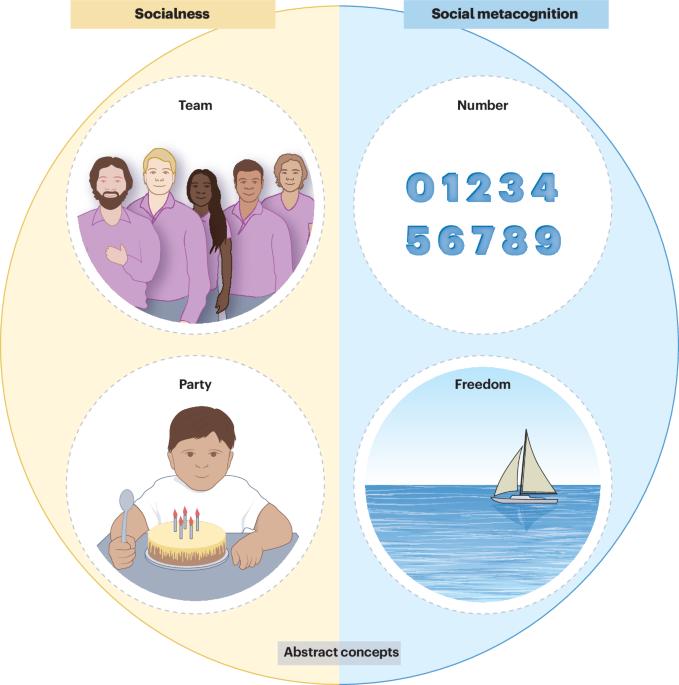The role of social interaction in the formation and use of abstract concepts
IF 21.8
Q1 PSYCHOLOGY, MULTIDISCIPLINARY
引用次数: 0
Abstract
Abstractness — the capability to form and use abstract concepts, like ‘fantasy’ — is pivotal to human cognition. Different abstract concepts are characterized by different degrees of sensorimotor, interoceptive, emotional, linguistic and social aspects. In this Perspective, we propose a social route to abstractness, highlighting the role of social interaction and conceptual flexibility in abstract concept acquisition and use. We distinguish two notions: ‘socialness’, the idea that the content of abstract concepts evokes more social aspects than concrete concepts, and ‘social metacognition’, a process that includes a monitoring and an interactive phase. Compared with concrete concepts, social support is more critical to acquiring abstract concepts and to aligning and co-building conceptual meaning while using them. We also introduce a semantic dimension, vagueness, which distinguishes abstract concepts with more determinate meaning (such as some scientific and magnitude concepts) and abstract concepts whose meaning remains vague and socially negotiable. We connect the literatures on concepts, knowledge outsourcing and knowledge communities and highlight open research questions to test the social route to abstractness. The capability to use abstract concepts such as ‘justice’ is a key part of human cognition. In this Perspective, Borghi et al. highlight distinct levels of social interaction and conceptual flexibility in the acquisition and use of abstract concepts.

社会互动在抽象概念的形成和使用中的作用
抽象性——形成和使用抽象概念的能力,比如“幻想”——是人类认知的关键。不同的抽象概念具有不同程度的感觉运动、内感受、情感、语言和社会等方面的特征。在这一观点中,我们提出了一种社会途径,强调社会互动和概念灵活性在抽象概念的习得和使用中的作用。我们区分了两个概念:“社会性”,即抽象概念的内容比具体概念更能唤起社会方面的想法,以及“社会元认知”,一个包括监测和互动阶段的过程。与具体概念相比,社会支持对抽象概念的习得以及概念意义在使用过程中的对齐和共同构建更为重要。我们还引入了一个语义维度,即模糊性,它区分了具有更确定意义的抽象概念(如一些科学和数量级概念)和意义仍然模糊且社会可协商的抽象概念。我们将概念、知识外包和知识社区等方面的文献联系起来,突出开放性的研究问题,以检验抽象的社会路径。使用“正义”等抽象概念的能力是人类认知的关键部分。在这一观点中,Borghi等人强调了在获取和使用抽象概念时不同层次的社会互动和概念灵活性。
本文章由计算机程序翻译,如有差异,请以英文原文为准。
求助全文
约1分钟内获得全文
求助全文

 求助内容:
求助内容: 应助结果提醒方式:
应助结果提醒方式:


